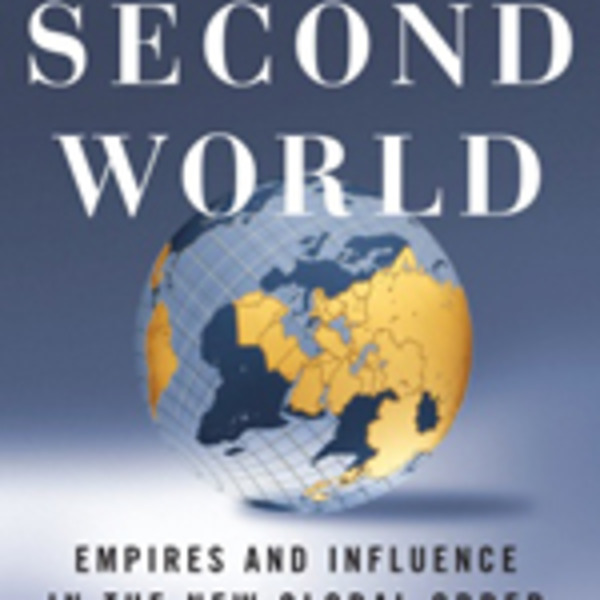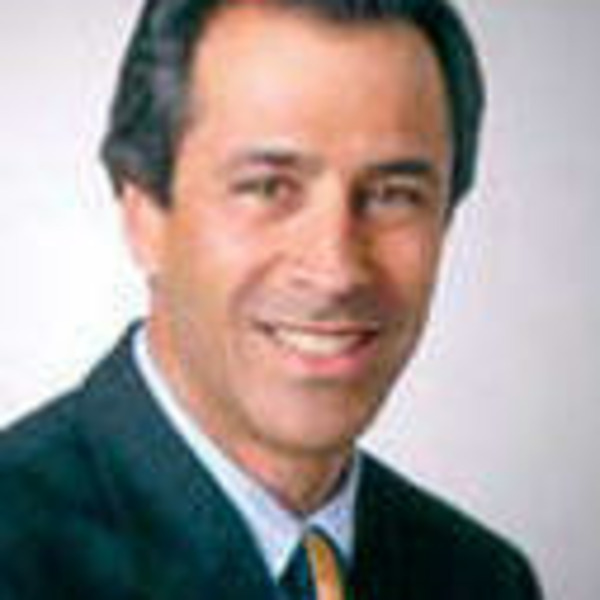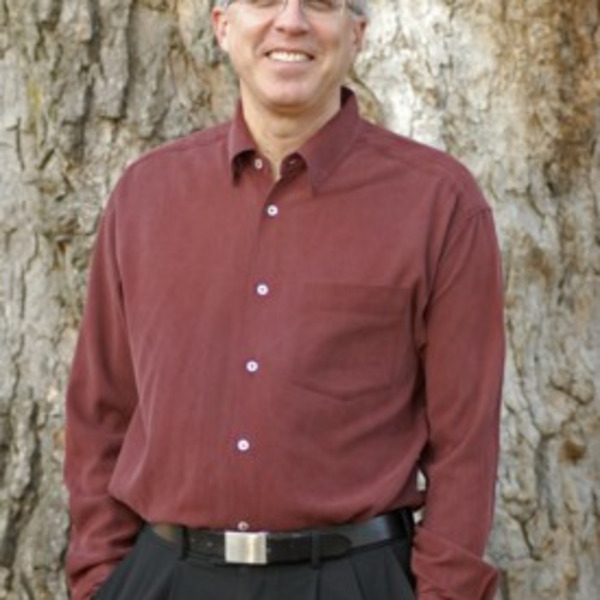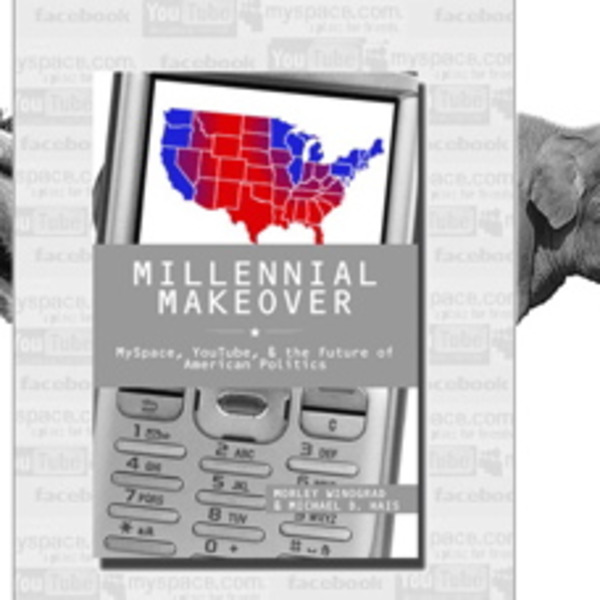Q&A: PARAG KHANNA, Author
Written on December 12th, 2008
Aired 12/09/08 Parag Khanna specialized in scenario and risk planning at the World Economic Forum, and conducted research on terrorism and conflict resolution at the Council on Foreign Relations. In 2007, Khanna served as a senior geopolitical advisor to United States Special Operations Forces in Iraq and Afghanistan. As a Senior Research Fellow and the Director of the Global Governance Initiative at the NEW AMERICA FOUNDATION, Mr. Khanna leads an effort to find innovative strategies for governmental, corporate, and civil society collaboration to resolve pressing global problems and redefine diplomacy for the 21st century. His writings have appeared in The New York Times, The Financial Times, Harper's Magazine, Slate." His first book, THE SECOND WORLD: EMPIRES AND INFLUENCE IN THE NEW GLOBAL ORDER has been highly praised. His upcoming HOW TO RUN THE WORLD is on the future of diplomacy. http://www.paragkhanna.com
Q&A: Marc Darrow, M.D., J.D.
Written on December 9th, 2008
Aired 12/02/08 MARC DARROW M.D. is a Board Certified Physiatrist specializing in Physical Medicine and Rehabilitation and an Assistant Clinical Professor at the University of California at Los Angeles's, School of Medicine. Dr. Darrow emphasizes prolotherapy in his practice and teaches prolotherapy at UCLA. He is the author of several books including The Knee Source Book and Prolotherapy: Living Pain Free. His self-titled radio show can be heard on KRLA 870 AM in Southern California. Prolotherapy (short for "proliferation therapy") is one of many holistic treatments MARK DARROW utilizes in his practice. Proliferation, of course, means "rapid production." Prolotherapy rapidly produces cartilage and collagen, a naturally occurring protein in the body. Collagen is a necessary element for the formation of new connective tissue, the tissues that holds our skeletal infrastructure together. When benign natural substances are injected into precisely targeted areas of the body, known as "trigger points," they activate the body's natural healing process and stimulate the growth of new collagen and cartilage. This can rejuvenate damaged ligaments, tendons, muscle fascia and joint capsules responsible for most chronic pain. Learn more at www.jointrehab.com
Q&A: JODIE EVANS, co-founder CODE PINK
Written on December 9th, 2008
Aired 12/02/08 JODIE EVANS is the co-founder the International Occupation Watch Center in Iraq, and of CODE PINK, with, among others, Medea Benjamin. Jodie's Baghdad Journals are at the center of the 2003 book, Twilight of Empire, and she is co-editor with Benjamin of Stop The Next War Now. Medea and I (CODEPINK co-founders) are spending the week in Iran on a citizen's diplomacy visit, engaging with Iranian women's groups and officials to build bridges and create peace from the ground up. We arrived Friday. Here's a bit of our experience. It is our third day in Iran and we feel like we've been here a month. We are all a bit bleary eyed, with too little sleep. Poor Ann Wright has been hit with the flu, but she doesn't miss a meeting. Leila Zand, our trip leader from Fellowship of Reconciliation is managing three jobs while trying to handle her wild bunch (Medea and myself.) Medea and I aren't great at following rules, especially when they don't make sense. So to be in a form of a straight jacket probably brings our rebellious spirit. Leila has to carry too much of our pent up energy and desires to see and do as much as possible in this short trip. We are all walking the tightrope of wanting to bring more groups back. This is the purpose of the trip and what we complained to Ahmadinejad about in September-the complaint that led to this trip. To break open the knot between Iran and the U.S., we need more citizen diplomacy, and Medea and I surrender to the need and agree to what I am now calling Slow Activism. There are people we have introductions to that we can't meet because it would upset the government, at whose very consent we are here-having been denied entry previously. So we are ALL on our best behavior. I even think I have been able to keep my scarf on much more than the last trip. It also helps us to better understand the terrain. Our friends here learn how to navigate the political land mines. International recognition here is a ticket to a freedom most Iranians who are politically active don't have. Habib knows how to fill a vacuum and seems to know they are inherent in the structure of our visit. Promises of meetings melt away and he is there with the replacement. We were supposed to be at the U.S. Embassy this morning, a tour prepared by the government-it was even announced in the press. But that and a meeting with the Foreign Minister were announced cancelled when we woke. So Habib whisked us off to the a War Library at the Center for Artists. A pretty serious library of books about war from around the world including 800 they had published or arranged to publish themselves. The director had been a journalist in the 8-year war and has given his life to telling its story to make sure another doesn't happen. A great partner for our War is So Over message....and a reminder it takes a lot of pictures, words and movies to tell that story. Lucky we love Habib so much because he manages to spend most of his time with us breaking our hearts and taking us deeper and deeper into the devastation of the 8-year war. I think when I leave I will feel like I was there. We wanted to ride a subway and we wanted to go shopping-if meetings cannot be arranged, then please take us into the belly of the city! We walked for blocks to the subway entrance. Public transportation is priced right-20 cents for the subway and 2 cents for the bus. It was about 3:30pm and getting close to rush hour so the train was packed and we had a choose between the men's train or the women's. We chose the men's train and it was packed. We had to push our way in to fit and of course all eyes were on the Westerners. We went five stops standing and mashed together, the other women on the train were young or with a partner. We emerged from the train to a bustling street. There were hundreds if not thousands of women in long black chadors. We had arrived at a community much more religious than the middle of downtown were we live. It was a fantastic bazaar which, unlike that of Isfahan where it is mostly crafts, seemed to cater to the needs of the community (housewares were in abundance.) Rostan told us that a wives' family has to buy what is needed to create the new home, and all around us, young girls and their mothers where laden in housewares. A tiled, arched entrance swallowed us and we got lost in catacombs of alleys laden with wares and Victoria's Secret-styled stalls with sexier lingerie than I have ever seen. We found our way to a center with vaulted tiled ceilings. Medea found a fantastic set of pink silverware, 33 pieces for $20. Needing a toilet we learned there are mosques almost everywhere and they are the best place to look. We found a mosque just outside and were greeted with warmth and invited in. As darkness engulfed this neighborhood and the stalls closed at the call to prayer, we descended to the subway again. There were hundreds of people, all in black, pushing to get through. It was awesome to behold. We thought of going up to take a cab but realized at rush hour it would take even longer. So we poured ourselves into the throng and decided this time we would try the women's car. What fun! We had a delightful conversation facilitated by a young woman who knew a bit of English. I love the curiosity of the people in Iran-they simply stop us on the street to know where we are from and it reminds me of our visits to Iraq. As I would come home to Venice Beach after being in Iraq and know just how closed a society I live in. There is no curiosity in those streets. Just people going somewhere, and when I have the openness that lingers when I come home, people think I am crazy. All the young women in the subway car have graduated from college-an urban planner, sociologist, doctor, teacher and mother's with their young children. It is much saner than the men's car and we get the wisdom of the separation. We went a stop past ours to find chador stores for Medea. We walked for blocks and blocks with no luck, finally there seemed to be one that was made of cotton. She went inside to try it on and I met a student who came up to ask if I was serious about the big peace sign on my back. "Glad you are here for PEACE,"" said Essa Abrahani, a student of mechanical engineering. "Congratulations for being here, US idea of Iran is colored by revolution and 8 year war. Come visit and see who we really are," was his message to Obama. Medea emerged with a new outfit that they even managed to hem for her. We had dinner in a richly layered restaurant full of music, courting couples, big families and the ever-present kabob. We had a fast dinner to be home for our weekly staff conference call on Skype from the internet café-and a late night of catching up on emails and blogs. Learn more at www.codepink4peace.org
Q&A: DAVID BOLLIER, Author, Jounalist and Consultant
Written on December 8th, 2008
AIRED 12/01/08 DAVID BOLLIER is a independent policy strategist, journalist, activist and consultant with an evolving public-interest portfolio. DAVID BOLLIER work tends to focus on a few key concerns: reclaiming the commons, understanding how digital technologies are changing democratic culture, fighting the excesses of intellectual property law, fortifying consumer rights and promoting citizen action. Most of David's work these days is focused on the politics, economics and culture of the commons. In addition to speaking and writing frequently about the commons, David edit's the web portal and blog www.OntheCommons.org Newcomers to the commons might want to start by reading a terrific flyer, "Let's Reclaim the Commons," a report on The State of the Commons, a report on The Commons Rising, or any of my speeches. In January 2009 New Press will publish, "Viral Spiral: How the Commoners Built a Digital Republic of Their Own." Viral Spiral is about the rise of free and open-source software, Creative Commons licenses and the content commons they make possible, the internationalization of "free culture," and the burgeoning "sharing economy" that can be seen in open education, open science and open business models. DAVID BOLLIER has a number of affiliations and diverse projects at any given time, but most of David's work is done as: Editor, OntheCommons.org Senior Fellow, USC Annenberg School for Communication, The Norman Lear Center Collaborator with television writer/producer Norman Lear Co-founder and board member, Public Knowledge
Q&A: Morley Winograd and Michael Hais, Authors
Written on December 5th, 2008
Aired 12/01/08 Morley Winograd and Michael Hais, Authors of Best-Seller Millennial Makeover. Morley Winograd is the executive director of the Institute for Communication Technology Management (CTM) at the University of Southern California’s Marshall School of Business. He is also the president and CEO of Morwin, Inc., a government reform consulting company. Michael D. Hais served for a decade as Vice President, Entertainment Research and for more than 22 years overall at Frank N. Magid Associates where he conducted audience research for hundreds of television stations, cable channels, and program producers in nearly all 50 states and more than a dozen foreign countries. Millennial Makeover builds a strong case for how today's rising generation is poised to become a political powerhouse, re-energizing civic spirit and transforming both the substance and process of American politics. With new technologies, attitudes, and agendas, this generation could define the twenty-first century just as fundamentally as the G.I. Generation defined the twentieth century. Winograd and Hais build a strong, historically rooted case for how this could unfold. -- Neil Howe and William Strauss, authors of Generations: The History of America's Future, 1584-2069 http://www.millennialmakeover.com
